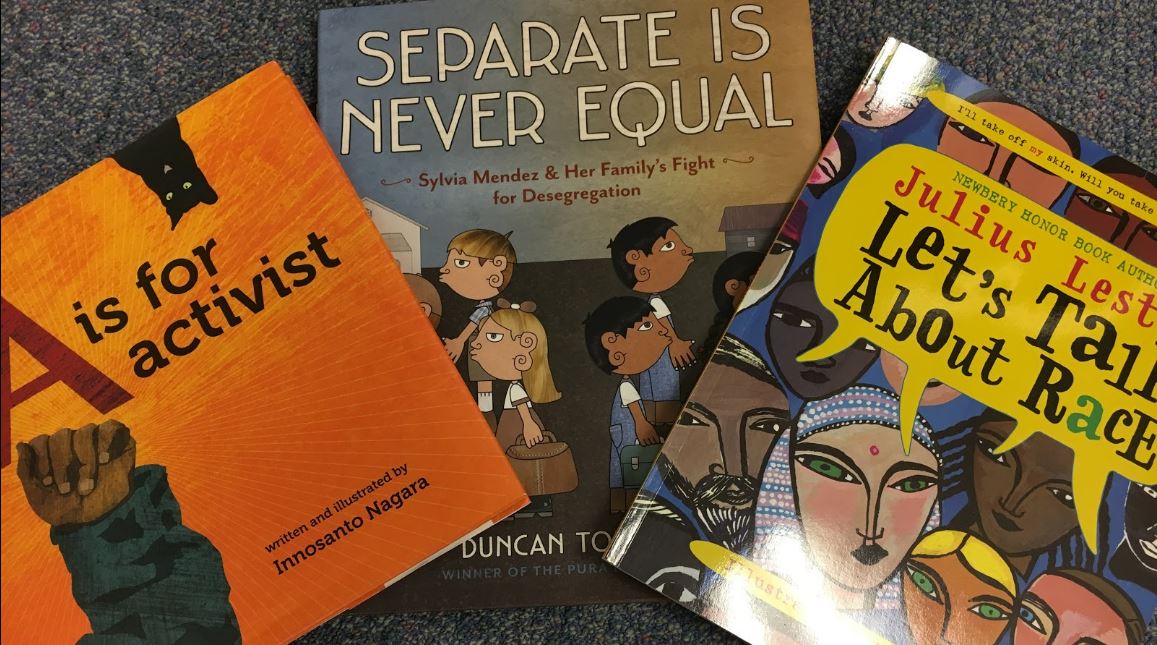Katherine Kersten responds to the TWO Counterpoints aimed at her in today’s Star Tribune
The Star Tribune has published two counterpoints to my March 18 op-ed on the racial discipline gap in Minnesota schools [“Undisciplined: Chaos may be coming to Minnesota classrooms by decree.”] The authors don’t put much stock in facts or logical argument—name-calling is so much easier. But then, we’ve come to expect that. [Star Tribune illustration.]
The first counterpoint [“False claims and dog whistles in KK’s commentary on school discipline”] was written by Julia Hill, a reading teacher in the St. Paul Public Schools, and Dana Bennis, “director of learning” at an organization called “the Institute for Democratic Education in America.” These two denounce my op-ed as “contemptible,” and give three reasons (sort of):
First, they charge me with “making up a false argument”: “that those working to reduce racial disparities in school suspensions believe that racist teachers are to blame.”
Ironically, Hill and Bennis immediately go on to make this “false argument” themselves. The source of the racial discipline gap, they declare, is “the pervasive, centuries-long history of institutionalized and systemic white supremacy and racism.”
Next, Hill and Bennis charge me with racial fear-mongering for suggesting that high out-of-wedlock birth rates are a primary factor in disproportionately high school misconduct by black and Native American students. In fact, the link between out-of-wedlock birth status and the likelihood of anti-social conduct is incontrovertible, having been established by decades of social science research.
Hill’s and Bennis’s final claim is that “research-based practices” like restorative justice and “circle processes (talking)” are “tremendously effective” alternatives to discipline policies that include suspensions.
Is that credible? Just ask the teachers of Syracuse, New York.
In 2014, after New York’s attorney general ordered the Syracuse public schools to reduce racial discipline disparities, the district adopted a discipline policy based on “restorative justice” and “peace circles”—precisely the policies that Hill and Bennis endorse.
The result? All hell broke loose. As I point out in my Star Tribune op-ed, two-thirds of Syracuse teachers questioned in a 2015 survey said they feared for their safety, 57 percent reported being threatened, and 36 percent reported being physically assaulted—shoved, kicked, head-butted, choked or bitten.
Teachers also told of threatening phone calls and damage to property—“often teachers’ cars while they were parked in school lots,” according to the Syracuse Post Standard. Increasingly—and ominously—the explosion in violence and disorder involved parents. “Aside from students, many staff members complained of parents or family members entering the building and getting aggressive with them,” the paper reported.
So much for “peace circles.”
The second counterpoint in the Star Tribune was penned by Tom Connell, a history teacher in the Edina public schools and president of Education Minnesota/Edina. Connell is clearly not a fan of my articles about ideological imbalance in the Edina public schools, which he labels “incendiary.”
Connell opens his piece with an allusion to Sen. Carla Nelson’s bill requiring academic balance in public school classrooms, which is currently before the Minnesota Senate Education Policy Committee. He claims this legislation was inspired by my “irresponsible” articles about the Edina Public Schools.
Connell denounces Nelson’s bill, on grounds that it “would prohibit teachers from directing students to research and argue for ideas they don’t agree with.” Yet he must know this is false. The bill simply extends rules about academic balance like those currently in place in the Edina public schools to public schools throughout Minnesota.
Specifically, Nelson’s bill does the following four things:
- Prohibits schools from requiring students to express specified social or political viewpoints as a condition of receiving academic credit;
- Requires schools to expose students to a “broad range” of views on subjects of study, “including contemporary political controversies;”
- Requires students to be assessed on the basis of “reasoned answers” and not on their political beliefs; and
- Requires teacher to use “caution” when “expressing personal views in the classroom” and prohibits them from introducing controversial matters that are unrelated to the subject being taught.
Does Connell really object to these things? If so, the Edina schools are in even bigger trouble than I thought—and Connell’s real beef is with Edina High School (EHS) officials.
The Edina district’s Policy 606, for example, requires that “all sides of [a controversial issue] be given proper hearing” in the classroom and that students learn about “alternative points of view.” The policy also prohibits a teacher from using “his/her position to forward his/her own…political…or social bias.”
Connell devotes the rest of his counterpart to condemning my Fall 2017 Thinking Minnesota article on ideological imbalance in the Edina schools, which he characterizes as “full of errors and distortions.” As usual, one looks in vain for examples.
Connell seems particularly incensed about a statement by another commentator on the use of a children’s book entitled “A Is for Activist.” But he neither mentions nor contradicts what I wrote about this—because its truth is incontrovertible.
I wrote in Thinking Minnesota that Katie Mahoney, principal of Edina’s Highlands Elementary School,
uses Highlands’ social media—including her equity corner on the school’s Wonder blog—to promote a broad range of left-wing ideological propaganda. One such resource, typical of the rest, is an A-B-C book for kids entitled A is for Activist.
Mahoney included a photo of the book in her endorsement of it on Highlands Elementary’s blog [image below]. Sorry, Mr. Connell—no way to dodge that.
